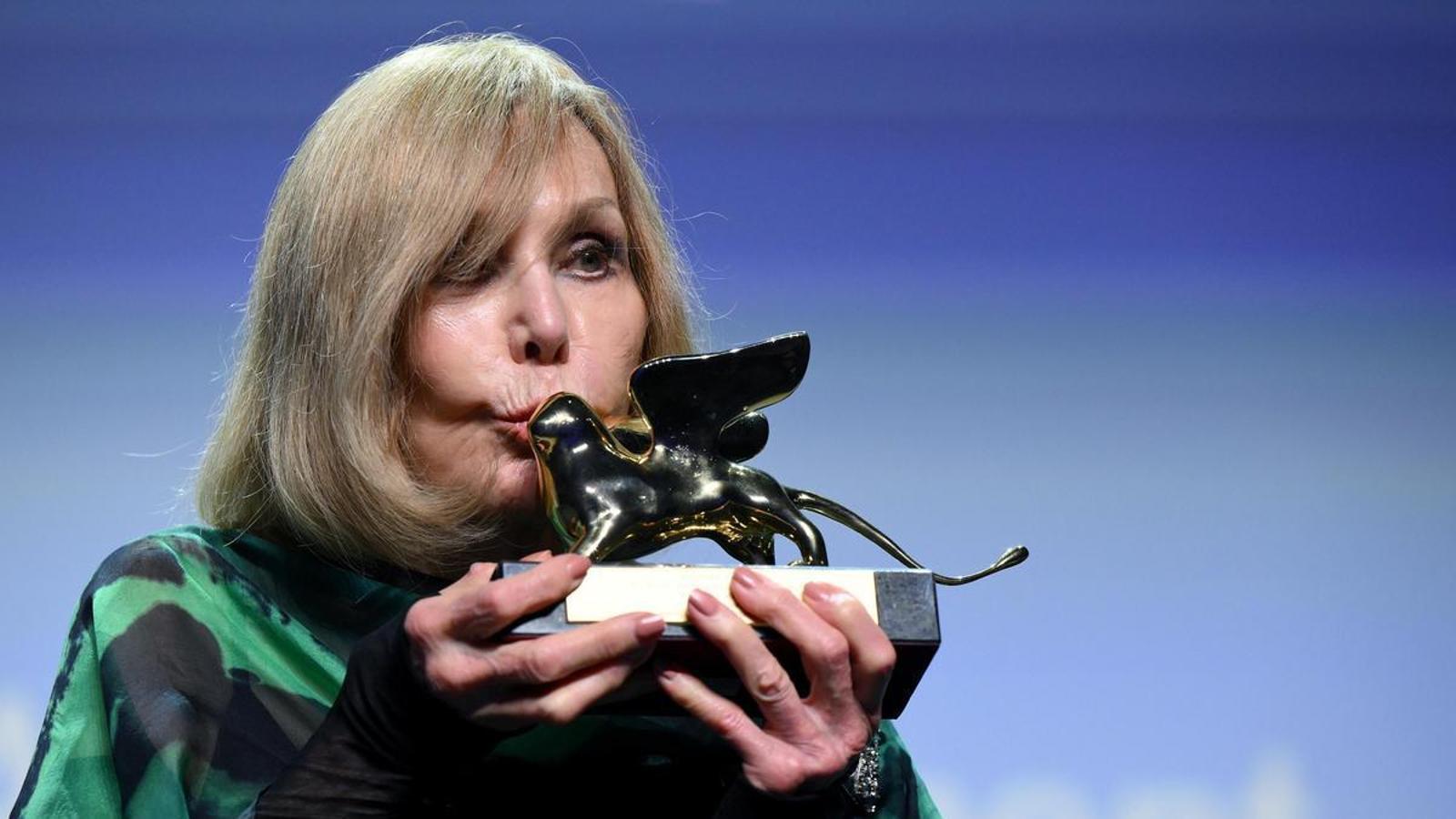Kim Novak receives the honorary Golden Lion in Venice and calls for "saving democracies."
The American actress presents a documentary that reviews her life and her escape from Hollywood to find freedom.

BarcelonaKim Novak is back in the spotlight. The American actress, an icon of Hollywood's golden age and the star of one of Alfred Hitchcock's masterpieces, Vertigo (1958), received the Honorary Golden Lion at the Venice International Film Festival on Monday. She received it at the age of 92, after decades of public absence, and with a clear message: "We need to open our eyes and do everything possible to save our democracies."
The ceremony took place at the Palau del Cine and received a prolonged round of applause when Novak, emotional and wearing a green scarf, took the stage. "I have to be honest and say that one of the reasons I'm here is to inspire as many people as possible, those who believe that their rights, their lives, and their freedom are important," she said in a speech with a vindictive tone. "That's why I want to say to all the democracies in our world: we need to unite and work together and create together, do everything possible to save them."
Novak, who had not participated in the press conference before the award, thanked his parents, his "compass" for life, and addressed his own fragility. "I'm bipolar, and that's why it's very difficult for me to handle pressure. I want to give some advice to those who find themselves in my situation: art is a great help," he said, encouraging them to explore disciplines such as painting, his great passion since leaving film.
His presence in Venice is not only about the award. The festival also hosts the out-of-competition premiere of Kim Novak's Vertigo, a documentary directed by Alexandre O. Philippe that revisits the actress's career through archival footage, personal notes, and intimate reflections. As Novak explained to Variety, the project was "an opportunity to close my life, like a confession."
The film opens with a voice note in which the actress talks about health and her awareness of the time she has left, but what we see next is a vital woman, with a prodigious memory and intact energy. Philippe defines the documentary as "a personal portrait, not a montage of highlights." The structure is spiral, returning again and again to Novak's decision to leave Hollywood, each time with new nuances.
The filming included a particularly emotional moment, the opening of a box that had not been opened in sixty years, containing the gray dress that the actress wore. Vertigo. "I always felt like I was wearing a straitjacket," Novak admits, although he acknowledges that reconnecting with that piece, now softened by the passage of time, made him reflect on his own evolution: "It's touched me a lot, because it shows how time can change everything."
Novak's relationship with Hollywood was never easy. He grew up in Chicago and signed with Columbia at just 21. He became an international star thanks to films like Picnic (1955), The Man with the Golden Arm (1955), Pal Joey (1957) and, of course, VertigoIn 1966, at the height of her fame, she decided to leave Hollywood and barely appeared in a dozen films until 1991. Officially, there was no specific reason, but her manager, Sue Cameron, has explained to the press that a devastating fire in Los Angeles was the final "sign." Novak moved to a ranch in Oregon with her dogs and horses, where she still lives. There she paints, cares for animals, and maintains a demanding physical routine. "Every day she lifts weights and walks around the ranch. She doesn't give up; she's determined not to let age get the better of her," Cameron said.
This indomitable spirit is what Philippe wanted to capture. "When you make a film about someone like Kim Novak, you want the viewer to enter the mystery and come away with more questions," says the director. The documentary also shows the influence of his mother, who always encouraged him to pursue dreams she hadn't been able to fulfill. "I didn't know how much she influenced me to do what she wanted me to do," the actress confessed.
Guillermo del Toro's praise
Recognition in Venice closes a vital circle. Guillermo del Toro, who gave the acceptance speech, described her as "an unforgettable actress, capable of inspiring mystery, ingenuity, and ethereal things." Festival director Alberto Barbera highlighted her rebellious nature: "This Golden Lion celebrates an emancipated star, who lit up dreams before retiring to live the life she wanted."
In Novak's words, the award has profound meaning: "It's as if you received it too, because I am you." And in the documentary, she leaves a reflection that resonates like a living testament: "The closer you are to death, the more you realize how incredible life is."
